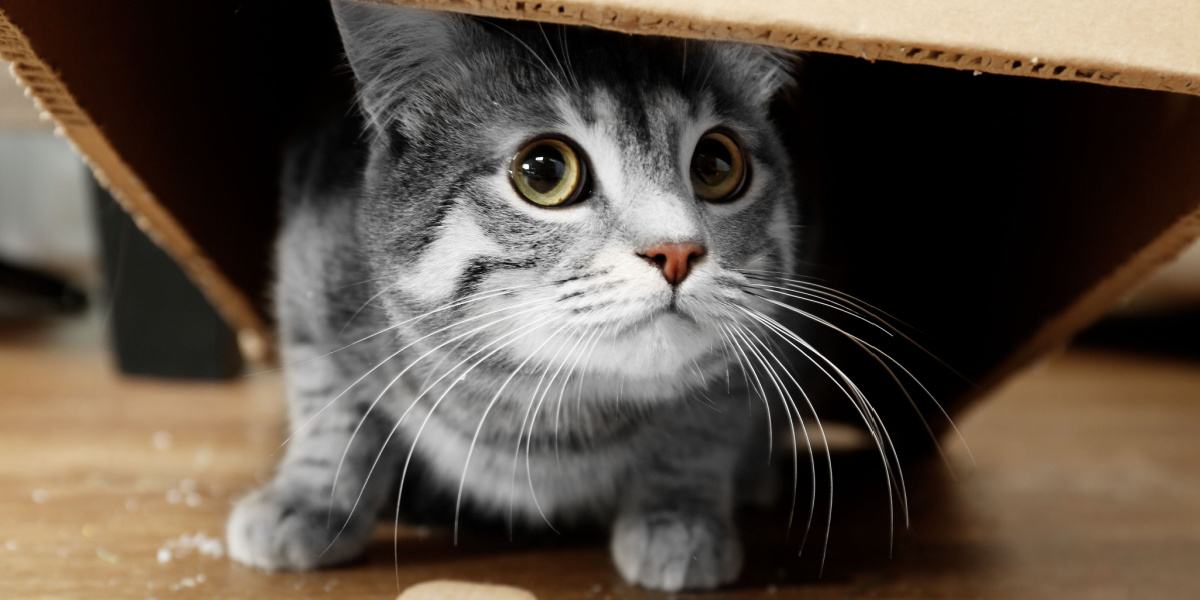
Cats are often known for having a solitary nature. Generally, they are quite happy to spend some time on their own. You might notice when your cat is hiding under the bed or sofa for a nap. This can be normal behavior.
However, it can become a cause for concern if your cat is hiding for long periods of time and acting strangely. Read on to find out the reasons why your cat might be hiding and how to get them out of hiding.
1. They Are Scared
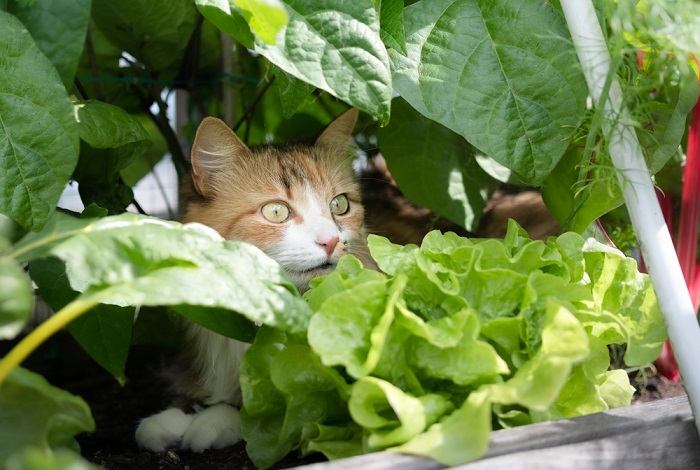
If your cat is afraid, they will likely hide away and monitor the situation from their hiding spot.
Fear is a big motivator for cats to run away and hide. When faced with a threat, a fight or flight response kicks in. Most cats will choose to run away and escape if they can do so.
Unexpected loud noises such as the doorbell ringing can send your cat fleeing in retreat. Perhaps you’ve brought a new pet home, or you’ve moved houses with your cat. Being placed in a new environment can be a scary experience for a cat.
When your cat is frightened, they will follow their instincts to run and seek out a safe place to hide. Hiding away allows them to check out their surroundings from a distance. They can then decide whether it is best for them to stay put or consider leaving their hiding spot.
A fearful cat might have wide eyes and flattened ears. Their body will be arched and tense and their tail held low and tucked.
Also Read: 8 Ways To Help a Scared and Fearful Cat Be Confident
2. They Are Stressed Or Anxious
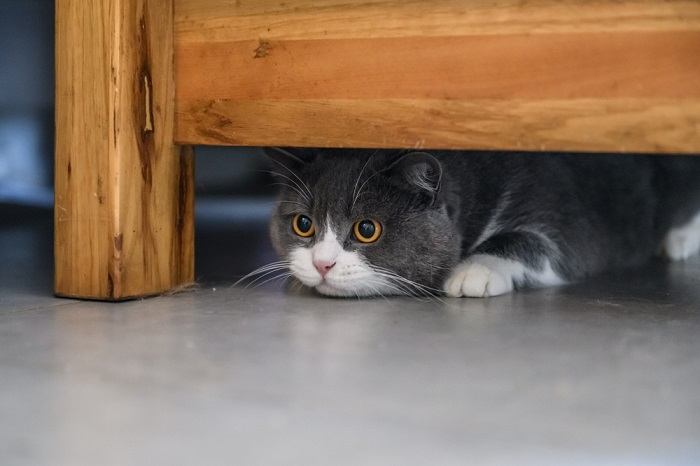
Cats will often hide when even a small change has occurred in their day-to-day routine.
If your cat is hiding, they may be feeling stressed or anxious. Cats like to stick to their routine. Any changes from the norm have the potential to trigger stress or anxiety. Small changes that we wouldn’t think are a problem can be enough to overwhelm your cat, such as switching to a different type of food or moving the location of their litter box.
Your cat can also become stressed if they are lacking mental and physical stimulation. Some other signs of stress include:
- Aggressive behavior toward people and other pets
- Destructive behavior
- Overgrooming
- Increased meowing/vocalization
- Peeing and/or pooping outside of the litter box
3. They Are Ill Or Injured
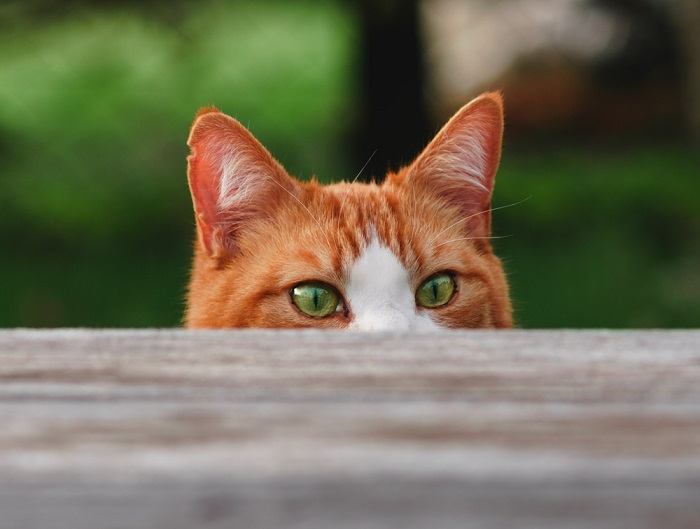
Cats don’t like to show vulnerability and weakness and they will often hide if they are feeling unwell.
Cats tend to hide and act strangely if they are feeling unwell. This comes from the need to protect themselves. In the wild, a sick cat would be in danger of attack by other predators. If your cat is hiding and keeping a low profile, this gives them a sense of safety and security.
A cat with a medical issue will show symptoms such as:
- Change in appetite and/or thirst
- Change in peeing or pooping pattern/behavior
- Low energy and lack of activity
- Weight loss
If your cat is hiding a lot more than usual and you’ve noticed other signs that concern you, it’s best to arrange for your cat to be seen by a veterinarian.
Also Read: 10 Subtle Signs Your Cat May Be Sick
4. They Are Close To Giving Birth
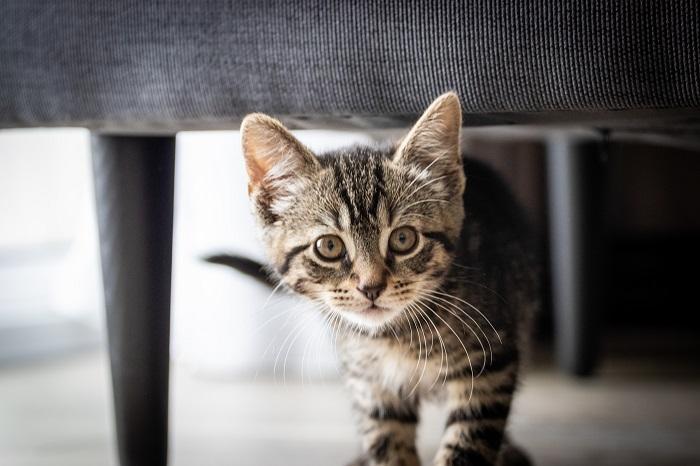
If your cat is expecting kittens, she will likely look for a safe, calm place to give birth.
Obviously, this won’t apply if you have a male cat or your cat has been spayed! When a cat reaches the final stages of pregnancy, they will spend a lot of time and effort searching for a quiet and secluded place.
Once the cat has found a suitable ‘hiding’ spot, the whole birthing process will take place there. They might also show some behavioral changes towards people and other animals. While some cats might become friendlier and more affectionate, others might become more restless and aggressive.
So, if your pregnant cat is hiding away and acting strangely, it indicates that you can soon expect the arrival of kittens!
Also Read: Can Cats Sense Pregnancy?
How To Get Your Cat Out Of Hiding
If your cat is hiding away, perhaps under the bed or sofa, you might be wondering how to get them out of hiding. Let’s take a look at how to do that.
Don’t Pull Them Out Of Hiding!
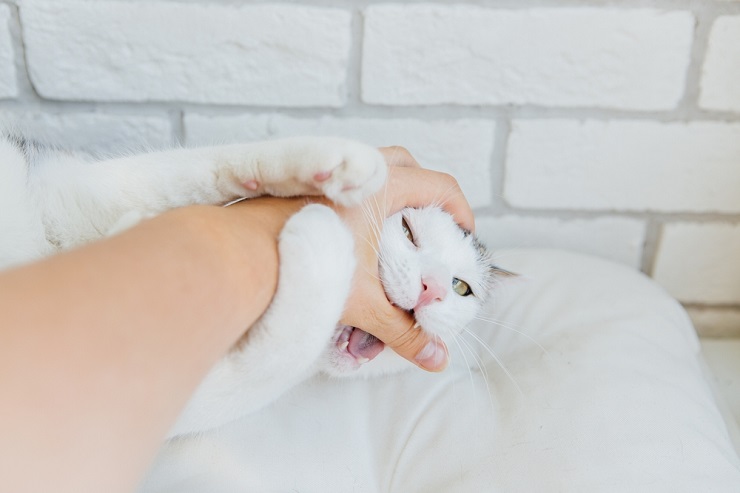
Cats don’t appreciate being pulled out of their hiding spots!
While it may be tempting, trying to grab your cat and pull them out of their hiding spot is not recommended. By doing this, you will only add to their fear and anxiety. As a result, they may resort to lashing out to protect themselves. The last thing you want to do is frighten your cat and get scratched or bitten in the process!
Also Read: Why Do Cats Scratch?
Use A Hands-off Approach
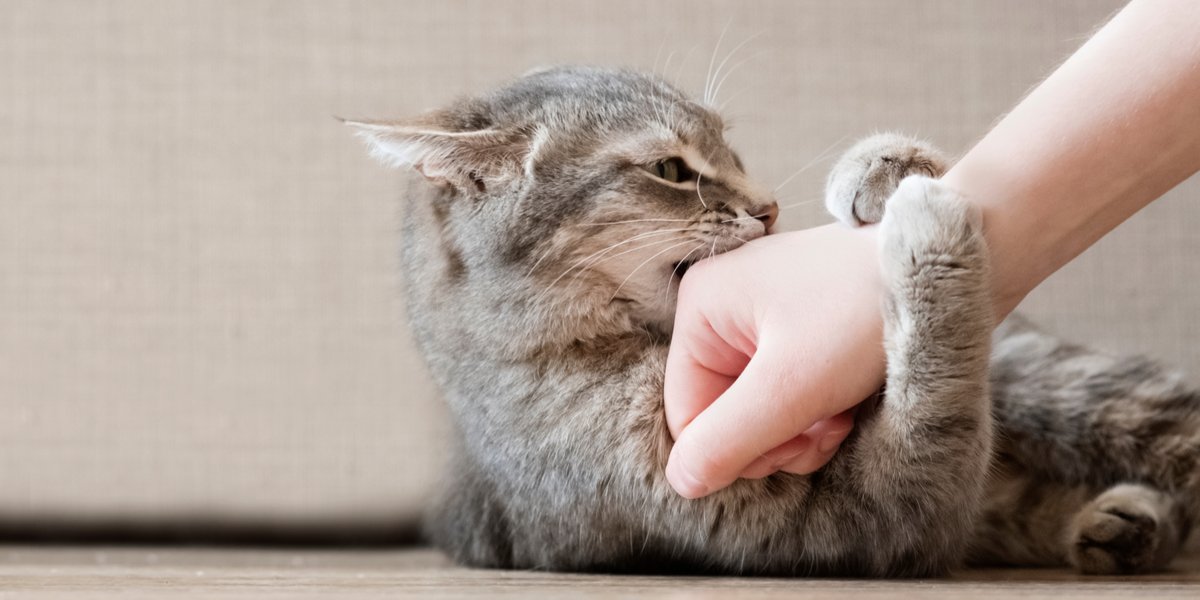
A cat can be lured out with food, treats, and toys, but they should not be forced to emerge before they are ready to.
Give your cat some time and space. Leave the room so that you are not standing over them while waiting for them to come out. If your cat is stressed or anxious, they will prefer not to be crowded. Once they feel more comfortable and secure, they will willingly emerge from their hiding space. It’s always best if you take things at their pace, rather than with force.
If you have brought a new cat home or moved to a new house, close the door so that they have a smaller space to explore once they are happy. When they are more confident, you can allow them access to other rooms.
If your cat is in the final stages of pregnancy and is hiding, do not try to fuss over her or forcefully remove her from where she is. While it’s important to keep an eye on her to make sure things are going smoothly, try to minimize any disturbances during this time so as not to stress her.
Also Read: How To Apologize To A Cat
Remove The Trigger
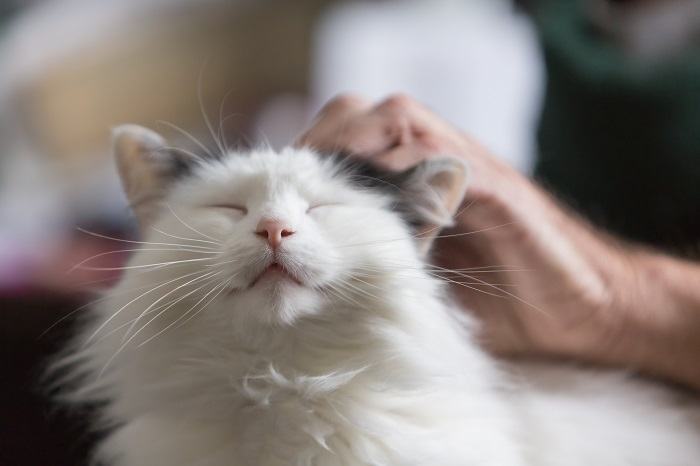
Creating a stress-free environment for your cat by removing things that cause them anxiety is best.
In some situations, you may be able to identify what has caused your cat to go into hiding. Perhaps they are scared of strangers in the house or there is a new cat in the neighborhood. Remove or minimize the trigger if possible.
If the trigger isn’t something that can be identified, eliminated, or changed, consider strategies to reduce your cat’s stress. Calming sprays and pheromone diffusers are just a couple of examples that can ease anxiety.
Use Food And/Or Toys
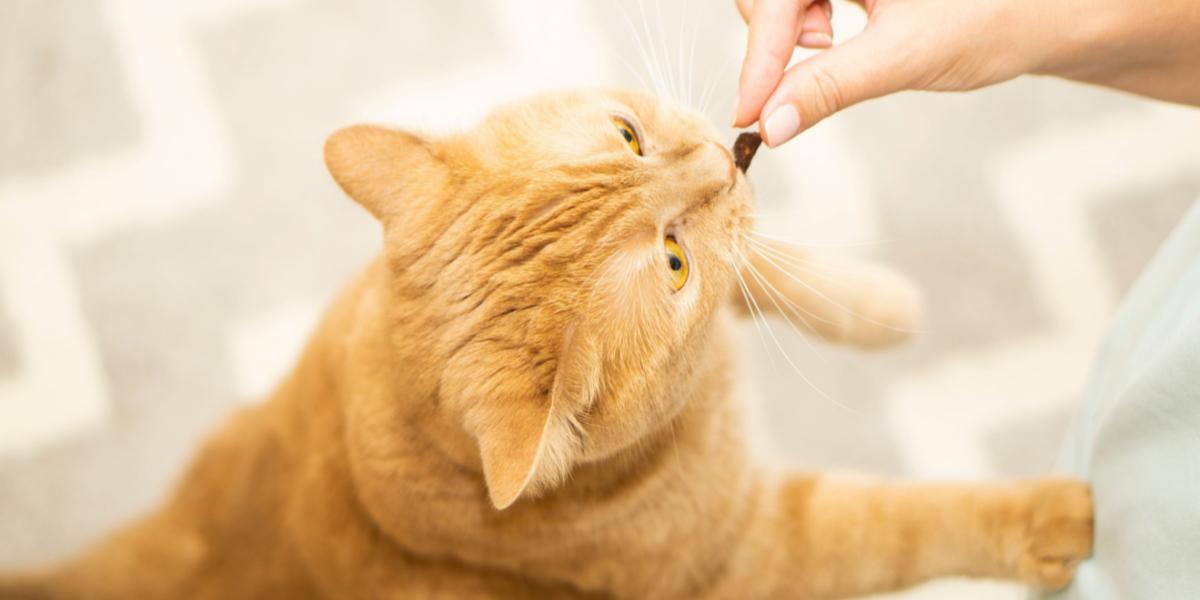
A cat in hiding may be convinced to come out if their favorite treat is offered to them.
Most cats are food-oriented so make good use of this to try and lure your cat out from hiding. Offer some of their wet food, dry kibble, or a tasty treat such as chicken or tuna. You can place it in their bowl and leave it near their hiding spot.
You can also offer your cat some toys and invite them to play. Interactive toys, like cat wands, are great for engaging cats. Try moving a wand toy back and forth near their hiding place. Appealing to your cat’s prey drive might be the key to getting them to come out again.
Also Read: How To Safely Play With A Cat, According To A Cat Behaviorist
Conclusion

Hiding spots can give your cat a sense of security.
Cats like to have hiding places where they can retreat for a sense of safety and security. Fear, stress, and illness can all cause a sudden change in the frequency or duration of your cat’s hiding behavior.
Cats are experts at hiding signs of pain and sickness from us. By understanding why your cat might be hiding and acting weirdly, you will be able to look out for other signs that might mean you should seek veterinary attention sooner rather than later.
Also Read: Why Do Cats Like Crinkly Things? 6 Reasons Why!







